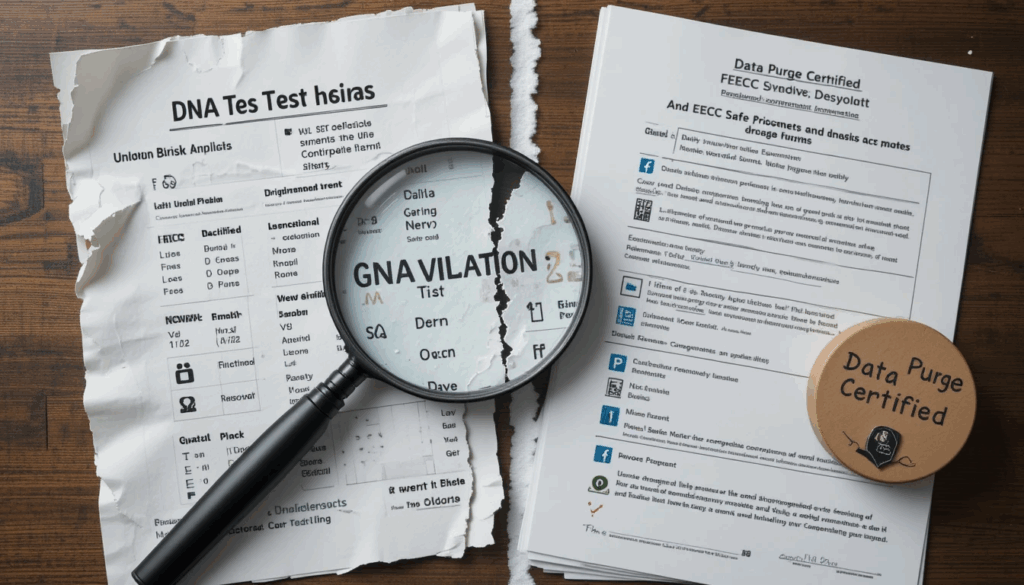Epigenetic discrimination claims are emerging as a nuclear threat to corporate wellness programs in 2025. With proposed expansions to the Genetic Information Nondiscrimination Act (GINA) and state laws like California’s CCPA covering genetic data, employers face six-figure lawsuits when wellness programs using genetic data reveal predisposition to costly health conditions. A Midwest manufacturer’s wellness vendor analyzed employee DNA for “personalized nutrition plans” – triggering an EEOC investigation when layoffs targeted participants with high diabetes risk markers.
Why This Is Exploding Now
-
2025 GINA Amendments: Would cover epigenetic markers (previously exempt)
-
Wellness Program Risks: 62% of epigenetic testing violates consent standards (World Privacy Forum)
-
Lawsuit Landmines:
› Premium adjustments based on epigenetic risks
› “Voluntary” programs with coercive incentives
› Data breaches exposing genetic vulnerabilities
For small businesses, the lawsuit risk is existential: Defense costs average $150K per claim, while retrofitting wellness programs costs $20K-$80K.
3 Compliance Strategies
1. Immediate Program Audits
-
Purge existing epigenetic data using GeneticDataErase.com ($2K flat fee)
-
Verify vendor compliance with BioPrivacy Certified standards
-
Document audit trails with blockchain timestamping
2. Redesign Incentive Structures
| Risky Approach | Compliant Alternative |
|---|---|
| DNA testing discounts | Step challenges with wearables |
| Genetic risk reports | Anonymous aggregate reports |
| Personalized premiums | Group achievement bonuses |
3. Implement Ironclad Consent
-
Use EEOC-approved disclosure forms (updated 2024)
-
Separate consent for genetic/non-genetic components
-
Annual re-authorization requirements
Case Study: Tech Startup Pivot
After discovering their wellness vendor collected methylation data:
1️⃣ Terminated vendor contract (invoking privacy clause)
2️⃣ Launched mental health coaching ($15/employee/month)
3️⃣ Added $500 “wellness achievement” bonus (steps/sleep)
Result: 94% participation without genetic risks
Critical 2025 Deadlines
-
March 2025: Proposed GINA expansion vote
-
June 2025: California epigenetic regulations enforcement
-
January 2026: Expected EEOC penalty guidelines
Compliance Cost Comparison
| Strategy | Cost | Risk Reduction |
|---|---|---|
| Genetic program cancellation | $0 | 100% |
| Retrofit with consent safeguards | $15K-$40K | 75% |
| No action | $0 upfront | Potential $500K liability |
Bottom Line
Epigenetic discrimination claims represent a paradigm shift – but proactive businesses can transform risk into opportunity. By auditing programs, redesigning incentives, and prioritizing non-genetic wellness, you’ll protect both employees and your bottom line.



